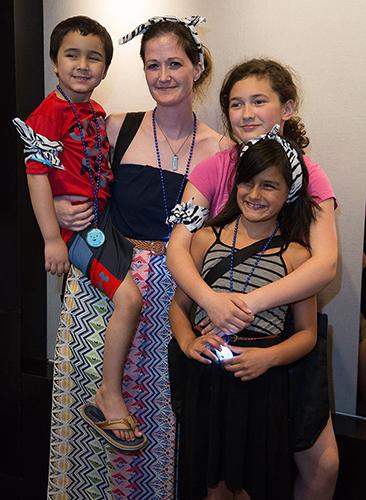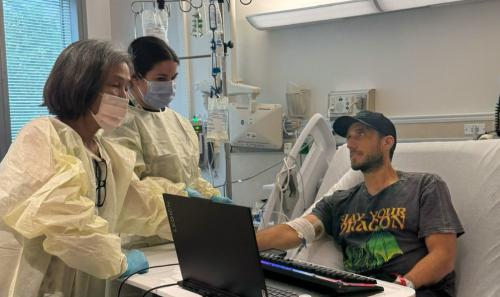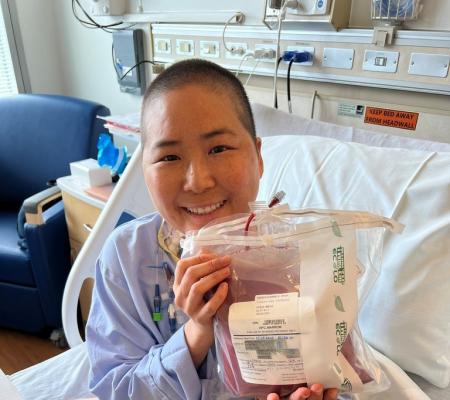
-
Understanding primary immunodeficiency (PI)

Understanding PI
The more you understand about primary immunodeficiency (PI), the better you can live with the disease or support others in your life with PI. Learn more about PI, including the various diagnoses and treatment options.
-
Living with PI
-
Addressing mental health
-
Explaining your diagnosis
- General care
- Get support
- For parents and guardians
-
Managing workplace issues
- Navigating insurance
-
Traveling safely

Living with PI
Living with primary immunodeficiency (PI) can be challenging, but you’re not alone—many people with PI lead full and active lives. With the right support and resources, you can, too.
-
Addressing mental health
-
Get involved

Get involved
Be a hero for those with PI. Change lives by promoting primary immunodeficiency (PI) awareness and taking action in your community through advocacy, donating, volunteering, or fundraising.
-
Advancing research and clinical care
-
Research Grant Program
-
Consulting immunologist
-
Diagnosing PI
-
Getting prior authorization
-
Clinician education
-
Survey research
-
Participating in clinical trials

Advancing research and clinical care
Whether you’re a clinician, researcher, or an individual with primary immunodeficiency (PI), IDF has resources to help you advance the field. Get details on surveys, grants, and clinical trials.
-
Research Grant Program

“It was extremely scary,” says Chelsi, a mother of four children, on how it felt when her son, Pedrito, was diagnosed with chronic granulomatous disease (CGD) at age one. “I felt like I was hit with a hammer and wanted someone to wake me up.”
Pedrito, now 7 years old, healthy, and an orange belt in Tae Kwon Do, is in first grade and is doing well. With a 504 plan, which is designed to help with accommodations and modifications of a child’s education, the school knows Pedrito’s restrictions, like staying inside during recess, where he could be exposed to mulch. His safe activity, Tae Kwon Do, allows him to stay active without being around the hazards that are outside. “His goal is to become a black belt,” says Chelsi.
Being a carrier
When Pedrito was diagnosed, Chelsi, then 31, found out that she is an X-Linked CGD carrier. “At the time, I wasn’t concerned about my carrier status. I was too overwhelmed with my son’s diagnosis.” The family also found out that the youngest daughter, Ana, is also a carrier. Chelsi’s 17-year-old son and 12-year-old daughter are not affected.
“My mom is also a carrier,” she says, “which solved a lot of mysteries for her.”
Many X-Linked CGD carriers experience symptoms without realizing what they are until a child has been diagnosed with CGD. Some of the most severe of these symptoms are lupus related.
“I had photosensitive skin when I was younger, and I also had a lot of headaches,” says Chelsi. “I was a healthy child and young adult, but I was diagnosed with discoid lupus when I was about 21 years old. I would break out from the sun and/or stress.” Now 38, Chelsi is experiencing more symptoms, like rashes, abscesses, and a cyst on her liver, than she has ever before, especially when under stress. “When things are calm, I’m perfectly healthy.” Ana, who is 10 years old, experiences headaches and had a mouth abscess a few years back.
Knowledge is power
“Knowledge is power and the more families understand CGD, the better they can prepare for their future,” says Chelsi.
Chelsi feels that keeping all her children informed on the topic of CGD and being an X-Linked CGD carrier is incredibly important. “We have talked a lot,” Chelsi explains. She has taught Ana about being a carrier and Pedrito about his CGD diagnosis. In fact, Chelsi’s oldest son has done multiple reports on CGD for school.
When it comes to finding out about carrier status and how to handle it, Chelsi encourages others to learn about their body, pay attention to how they’re feeling and any new marks or rashes that come up, keep in contact with their primary physician, research CGD, and connect with others for support. “I feel that so many people don’t know anything about the illness,” she says. “You need the professionals who know and understand CGD on your team.”
Life with CGD
“We stay very busy.”
The Esqueda family, who live in, Saint James, Minnesota, commutes 45 miles every day for school and work, often staying late a few days a week for Pedrito’s Tae Kwon Do classes. There are many things that Pedrito can’t do, like go to birthday parties that are at places that are dangerous for Pedrito. Instead, Pedrito finds other activities to enjoy, like playing video games.
“I have to say, he is a gamer!” says Chelsi. The other three Esqueda children often play with him. The family goes out to the movies, and Pedrito has friends over to their house. “We don’t visit a lot of people because of his restrictions,” she explains. Many people have pets and plants that can affect Pedrito. “It gets a little tricky at times, but we’ve adjusted.”
Related resources

Man with X-linked hyper IgM first-ever to receive novel gene therapy

Pharmacist with CVID receives bone marrow transplant

Undiagnosed: Reuben & Sherri Johnson on CGD, chronic illness, and the fight for healthcare
Sign up for updates from IDF
Receive news and helpful resources to your cell phone or inbox. You can change or cancel your subscription at any time.





The Immune Deficiency Foundation improves the diagnosis, treatment, and quality of life for every person affected by primary immunodeficiency.
We foster a community that is connected, engaged, and empowered through advocacy, education, and research.
Combined Charity Campaign | CFC# 66309

